It is no surprise why many people the world over love the taste of wine. The two natural substances known to convey the flavor of food most effectively are fat and alcohol. That’s why a salad with a drizzle of oil, a few nuts or some avocado tastes immensely better than dry lettuce leaves. It’s why fat-free marinara just isn’t as satisfying or enjoyable as a marinara made with a little olive oil. Anyone who cooks regularly—or enjoys eating—can tell you a little bit of fat goes a very long way to enhance the flavor of food. Wine has the same effect. Pretty much all wine enthusiasts will tell you a glass of wine with dinner simply makes the food taste better.

- Is Wine Healthy?
- Is Wine Healthy for Your Heart?
- Moderate Wine Consumption Linked to Decreased Risk of Stroke
- Does Drinking Wine Increase Risk of Breast Cancer?
- Is Wine Healthy if You Have Diabetes?
- Does Wine Make You Fat? Is Wine Healthy if you are Overweight?
- Don’t Want a Barrel Body? Research, Wine, Weight Gain….
- Does Avoiding Wine Make You Thinner? Not Necessarily…
- A Weight Loss Surgeon Weighs In
- Pouring in a Little Common Sense
- Wine is the Healthiest Alcoholic Beverage
- If You Don’t Drink Should You Start?
- Where Do You Find the Best Selection of Wine?
But beyond the taste-enhancing benefits of wine and beyond the temporary relaxation benefits a glass of wine (not a bottle!) provides —the question is does wine really have any intrinsic health-promoting properties? “Is wine healthy or not?” This is a question we get asked a lot from Clean Cuisine readers…especially when they see photos of us on Facebook with glasses of wine. We don’t make recommendations to avoid certain foods or beverages unless there is clear-cut scientific research to validate those recommendations. And there is absolutely not clear-cut scientific evidence to support avoiding wine for the average person.
Is Wine Healthy?
Unless you have a specific reason to stay away from alcohol (including alcoholism and depression) we believe the scientific literature strongly supports that moderate consumption of wine is in fact healthy for the average person. Moderate consumption means about one or two glasses if you are a man and one glass a day if you are a woman. Also, most of the studies show it’s the first one or two drinks per week that are by far the most beneficial…so there is no need to drink every night of the week. The people who should not drink at all include those with alcohol dependency, women who are pregnant, people taking medication that should not be combined with alcohol, those with depression and mood disorders and patients with liver disease. However, if you do not have a specific reason to abstain from wine, a close look at the medical literature makes it is hard to ignore the fact that a few drinks a week is very likely to provide health benefits for many people.
One of the earliest scientific studies on the subject of wine and health was published in JAMA in 1904 (1) Since then a flood of research has shown moderate drinkers tend to have better health and live longer than those who are abstainers or heavy drinkers. On the basis of an extensive review of research, the National Institute of Alcohol Abuse and Alcoholism (NIAAA) reported that moderate drinkers have the greatest longevity (2). It also found that moderate drinking is beneficial to heart health, resulting in a sharp decrease in heart disease risk (40 to 60 percent.) Researchers at Harvard studied more than twenty-two thousand men ages forty to eighty-four for nearly eleven years and found the risk of dying was 28 percent less per week for those who had two to four drinks per week and 21 percent less for those who had five or six drinks a week.
Clearly, the benefits of alcohol do NOT increase with more drinks. The take-home message here is NOT that more wine is better. It is a fact that excessive consumption of alcohol poses serious health risks. The only acceptable way to consume alcohol in any form is in moderation.
Is Wine Healthy for Your Heart?
Yes. Even Caldwell B. Esselstyn, M.D., who presents a very extreme, ultra-low fat vegan diet in his book Prevent and Reverse Heart Disease says alcohol in moderation is just fine (page 71.) The fact that someone like Dr. Esselystyn says alcohol is ok in moderation is pretty note-worthy considering how strict his dietary recommendations are otherwise. But there’s solid research to back Dr. Esselystyn up. The moderate consumption of alcohol appears to increase “good” HDL cholesterol and reduce the formation of the clots that block arteries. More than 100 studies suggest light to moderate drinkers have a lower risk of heart disease. Study after study has shown that men who drink moderately are 30 to 40 percent less likely to have a heart attack than men who don’t drink at all. That’s about the same as seen in the powerful cholesterol-lowering statin drugs.
In fact, moderate alcohol consumption appears to be more effective than just about every other lifestyle modification factor used to lower the risk of heart disease and other diseases (3). Only cessation of smoking is proven more effective. Additionally, other medical research suggests that adding alcohol to a healthful diet is more effective than just following the diet alone. And the American Heart Association has reported moderate consumption of alcohol to be associated with dramatically decreased risk of stroke among both men and women, regardless of age or ethnicity. (4) Studies in the Copenhagen City Heart Study (5) and the Framingham Heart Study (6) have also found the consuming wine in moderation to be associated with increased life expectancy.
Moderate Wine Consumption Linked to Decreased Risk of Stroke
Stroke is the third leading cause of death in the United States. There are two types of stroke and the most common, an ischemic or embolic stroke, has the same origin as heart disease. So it’s not far-fetched to assume that if moderate consumption of wine decreases risk of heart disease it also decreases the risk of stroke. Sure enough, the medical literature supports this theory.
In a sixteen-year study examining data from the Copenhagen City Heart Study, researchers found intake of wine (but not beer or hard liquor) on either a monthly, weekly or daily basis was associated with a lower risk of stroke as compared with not consuming wine at all. This decreased risk of stroke was confirmed in the United States in the Northern Manhattan Stroke Study. Researchers examined alcohol consumption in more than eighteen hundred Manhattan men and women. They found a nearly 50 percent decrease in the risk of stroke for men and women who consumed up to two drinks per day. (7) Note: Drinking more than 2 drinks per day can increase your risk of stroke and brain deterioration.
Does Drinking Wine Increase Risk of Breast Cancer?
As a surgeon who operates on breast cancer patients regularly, Andy can’t ignore the connection that drinking alcohol of any sort has been linked to an increased risk of breast cancer. However, when you delve a little deeper into the research the increased risk may not be as clear-cut as many scientists have thought. New Canadian research showed drinking didn’t increase the chances of breast cancer at all in women at high genetic risk for the disease. And, while it certainly sounds scary to read about alcohol increasing breast cancer risk if you analyze the research you see the increased risk is not as great as you might think. For example, women who drink the most (15 drinks or more per week) appear to have a 2.6 percent risk of being diagnosed with breast cancer over seven years, compared with a 2 percent risk for those who had two or fewer drinks per week—or a mere .6 percent increase in risk. And then there’s the multicenter study of nearly 14,000 women showing that among postmenopausal women wine was not related to breast cancer, but hard liquor was (but maybe that’s because women who drink hard liquor also don’t live as healthy of a lifestyle as the wine drinkers?)
Furthermore, a “Clean Cuisine” diet that is plant-forward and ultra-rich in folate-containing vegetables and fruits, phtyonutrients (including isoflavones and lignans), antioxidants, and fiber and is also very low in animal foods and has a favorable omega-3 to omega-6 ratio but also includes a few glasses of wine a week is much more likely to offer protection from breast cancer than simply avoiding alcohol altogether. You have to take the big picture into consideration. Interestingly, several studies have shown that only women whose diets are low in green vegetables (with less than 400 mg of folate per day) see their risk of breast cancer increase with alcohol consumption—the same is not true for women eating lots of vegetables and a folate-rich diet. (8, 9,) The “Clean Cuisine” diet we recommend is extremely rich in vegetables and folate.
The thing is, whether you decide to drink wine in moderation or not should NOT be the focus of your breast cancer prevention strategy. Clean eating (with emphasis on unrefined “whole” plant foods and less animal foods), regular exercise and maintaining a healthy body weight and body fat level will offer far more protection against breast cancer than simply avoiding a few glasses of wine a week.

Is Wine Healthy if You Have Diabetes?
Studies show moderate consumption of wine is healthy for diabetics, especially because diabetes particularly increases the risk of arterial aging and heart disease. And, believe it or not, moderate wine consumption has also been associated with a reduced fasting insulin concentration, improved insulin sensitivity and a reduce risk for developing type 2 diabetes.
Studies also show moderate drinkers have lower insulin levels compared with nondrinkers consuming the same number of calories(10). In the Nurses Health Study, moderate drinkers were at a significantly less risk for developing diabetes as compared to teetotlers. (11) Furthermore, people who already have diabetes are less likely to develop heart disease if they drink alcohol. (12) Our conclusion? We see no reason to avoid drinking wine even if you have diabetes.
Does Wine Make You Fat? Is Wine Healthy if you are Overweight?
A lot of people avoid wine not because they don’t think it might be beneficial for their hearts, but because they believe it is fattening. Many diet book authors will tell you that wine inhibits your body’s ability to burn fat. We can’t tell you how many times we’ve heard dieters at dinner say they are going to skip the wine to “save calories” for the dessert. We can tell you right now this is a big fat mistake. From a weight management standpoint you’d be far better off having a glass of wine than a slice of cake.
Before we delve into the studies we can tell you this much…we both enjoy a glass of wine with dinner every night (Andy abstains when he is on E.R. call though.) We’ve been doing this for as long as we have been married, over a decade now, and both of us have perfectly healthy BMI’s. Ok, so that’s not exactly scientific “proof” so let’s delve deeper…but before we go deeper I should say I haven’t been able to find any research on body fat percentage and wine/ alcohol consumption. It is possible that if your goal is to be ultra, ultra lean (such as a body builder) or you are a competitive athlete you may need to skip the wine to gain the “edge”. But, if your goal is simply to have a healthy body weight and a relatively low body fat percentage and be in the “general fit” category (which is what I consider myself to be in) then having a glass of wine with dinner is perfectly fine.
Don’t Want a Barrel Body? Research, Wine, Weight Gain….
Actually, the science is right in line with our personal experience. We have believed for years that wine calories are not necessarily metabolized the same as the calories from food. In fact, in our first book, The Gold Coast Cure (HCI Books, 2005) we said “the calories in alcohol do not appear to be metabolized in the same manner as the calories from carbohydrates, fats and protein. There is no scientific rationale to abstain from drinking moderate amounts of alcohol in an effort to maintain a healthy waistline.” We didn’t just randomly come to this conclusion because we had a hunch or because we like to drink wine with our dinner; we based our conclusion on studies published in medical journals.
In April 1997, the Journal of the American College of Nutrition reported on a twelve-week crossover study. Fourteen men were given two glasses of wine to drink every day for six weeks, and then they were asked to abstain for six weeks. The men did not gain weight while they were drinking nor did they lose weight when they stopped (13). Two glasses of wine contain about 200 calories. Over a six-week period these men should have gained about 2 1/2 pounds, yet they didn’t gain an ounce. Researchers theorize the alcohol may enter a futile cycle where it is not metabolized in the same way as carbohydrates, fat or protein.
Does Avoiding Wine Make You Thinner? Not Necessarily…
One study actually showed that women who routinely drank moderate amounts of alcohol, totaling about one drink per day, carried almost 10 pounds less body fat than women who did not drink at all (14). Prior to this, researchers at the Centers for Disease Control showed that, over a ten year period, drinking alcohol seemed to have very little effect on body weight. However, in this study, drinkers tended to gain less weight when compared with people who abstained from alcohol (15.) In a similar ten-year study, drinkers actually displayed a slight tendency to lose weight (16)
On CNN.com, R. Curtis Ellison, M.D., the director of the Institute on Lifestyle and Health and the Boston University School of Medicine, said the strongest evidence to date that calories from food and alcohol are not created equal comes from the March 8, 2010 issue of the Archives of Internal Medicine. This study involved 19,220 healthy, normal-weight women done at the Harvard School of Public Health and Brigham and Women’s Hospital in Boston, Massachusetts. Dr. Ellison was quoted as saying, “Many other studies that are not nearly as well done as this suggest that calories from alcohol are metabolized differently. The alcohol calories probably don’t count as much as the calories from a Hershey’s Bar.” We’ll drink (just 1 glass) to that!
A Weight Loss Surgeon Weighs In
In addition to general surgery Andy performs over 200 weight loss surgeries each year. As a bariatric surgeon he has reviewed the diet and lifestyle of hundreds of bariatric patients over the years. The vast majority of his patients do not drink alcohol at all. Instead of sipping wine, the beverage his patients drink most frequently is sugary soda. Although Andy strongly discourages any calorie-containing beverage (including 100% juice) for his patients after they have had bariatric surgery, he still allows them to drink 1 or 2 glasses of wine if they wish. He doesn’t encourage wine consumption for weight loss, but he doesn’t discourage it either.
Pouring in a Little Common Sense
It would be irresponsible of us to not insert a little common sense here and put the health and weight loss benefits of wine in perspective. Just like proponents of the Mediterranean diet who try to link the consumption of olive oil to heart health miss the boat that the Mediterranean diet has been proven healthier than the S.A.D. (standard American diet) is not necessarily because of the olive oil but rather because the traditional Mediterranean diet is, among other factors, also rich in cardio protective and phytonutrient-rich plant foods, has a favorable omega-3 to omega-6 ratio and is very low in animal based saturated-fat, sugar and trans fats. The Mediterranean diet was proven healthier than the American diet not because of the oil but because of many factors. We can tell you one thing, simply adding ¼ cup of olive oil to your daily diet isn’t exactly going to improve your heart health…nor is it going to slim your waist. Same thing for wine. You can’t just start pouring the wine while continuing to gobble cheeseburgers and ding-dongs expect to lose weight and gain health. It just doesn’t work that way.
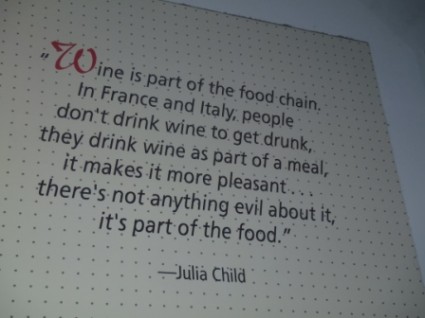
While it is true we have enjoyed drinking wine with our dinner for the past decade without gaining weight, we have also been eating clean and exercising regularly too. Had we been eating French fries and ice cream with our wine we are 1000% positive we would both weigh more than we weigh right now.
So, does wine make you fat? No. Eating junk food makes you fat. If you eat “Clean Cuisine” you will not be overweight. The research shows whether you choose to have a glass of wine everyday really won’t affect your waistline one way or the other. If you are one of those calorie-counting and point-tallying dieters who goes out to dinner and avoids wine to “save calories” for the chocolate cheesecake grand finale you should probably think twice about that choice next time you go out. The healthier and more figure-friendly choice would actually be the glass of wine!
Wine is the Healthiest Alcoholic Beverage

Red Wine Fermentation
For the record, we recommend wine over all other alcohol-containing beverages. This is because in comparison to hard liquor and beer, wine contains antioxidants and is very low in sugar (hard liquor is low in sugar but contains no antioxidants; beer contains antioxidants yet most varieties also contain a good deal of empty-calorie sugar.) As for whether to drink red or white the research is not clear cut just yet. Both red and white wine contain antioxidants but because red wine is fermented with the grape skins and rich in resveratrol it is believed to be the better choice. Interestingly, wines produced in humid climates such as Napa, Sonoma, Burgundy and Bordeaux, contain more resveratrol than wines produced in dry climates. And, Pinot Noir is believed to contain twice as much resveratrol as cabernet sauvignon or merlot. But whether you choose red or white really doesn’t make so much difference in the grand scheme as long as you choose wine over beer or hard liquor. Note: low-carb beers do contain significantly less sugar than regular beer, but they also contain significantly less antioxidants.
If You Don’t Drink Should You Start?
No. We are not saying you should start drinking wine if you have a specific reason not to or just don’t want to or don’t like the taste. If you have a family history of alcoholism or you’ve personally had a problem with alcohol or other substance abuse issues in the past you shouldn’t drink. If you battle depression drinking wine on a regular basis is not a good idea either. The benefits don’t outweigh the risks. And, we certainly are not saying wine should be your new weight loss weapon of choice either.
What are saying is that if you enjoy wine and it helps you relax and enjoy your healthy “Clean Cuisine” food then you shouldn’t avoid wine because you think it is only adding empty calories. Because research just doesn’t support that.
Where Do You Find the Best Selection of Wine?
While we do like to purchase everyday wine at Costco, we are increasingly purchasing online to assure a better selection; plus, it’s easier to shop from home. Our favorite site is wine.com as they offer a great selection and fair prices. If you order frequently consider becoming a member of their free shipping service. Click the image ad link below to browse their selection of “green” Clean Cuisine approved wines. The very good Rodney Strong Alexander Valley Cabernet Sauvignon is on the list. The ad will take you to their full site, too, if you had another brand in mind. Enjoy!
P.S. And just for fun…I thought I’d share these two quotes:
Thomas Jefferson, who, by the way, lived to the ripe old age of 83 (almost double the life expectancy of someone from his era) believed…
“Good wine is a necessity of life.”—Thomas Jefferson
Benjamin Franklin was quoted as saying….
“Wine makes daily living easier, less hurried, with fewer tensions and more tolerance.”—Benjamin Franklin
References:
- R.C. Cabot, “The relation of alcohol to atherosclerosis,” Journal of the American Medical Association 43 (1904): 774-75.
- D. Coate, “Moderate drinking and coronary heart disease mortality; evidence from NHANES 1 and NHANES 1 follow-up,” American Journal of Public Health 83 (1993): 888-90. The following studies support that moderate drinkers live longer than those who abstain: P. Boffetta and L. Garfinkel, “Alcohol drinking and mortality among men enrolled in an American Cancer Society prospective study.” Epidemiology 1 (1990):342-48; G Maskarinec, et al. “Alcohol intake, body weight and mortality in a multiethnic prospective cohort,” Epidemiology 9 (1998): 654-61; and J.M. Gaziano, et al., “Light-to-moderate alcohol consumption and mortality in the Physician’s Health Study Enrollment Cohort,” Journal of the American College of Cardiology 35 (2000):96-105.
- C. Maraldi, et al., “Impact ofInflammation on the Relationship among Alcohol Consumption, Mortality, and Cardiac Events: the Health, Aging, and Body Composition Study,” Archives of Internal Medicine 166 (2006): 1490–97; and M. Trevisan, et al., “Drinking Patterns and Mortality: A Longitudinal Study”; J. M. Gaziano, et al., “A Prospective Cohort Study of Moderate Alcohol Consumption and Sudden Death in the Physicians’ Health Study”; U. Keil, et al., “The Relation of Alcohol to Coronary Heart Disease and Total Mortality in a Beer Drinking Population in Southern Germany”; A. Waskiewicz, et al., “Alcohol Consumption and 11-Year Total and CVD Mortality among Men in Pol-MONICA Study”; D. E. Grobbee, et al., “Alcohol and Cardiovascular Risk in the Elderly.”All studies were presented at the 4th International Conference on Preventive Cardiology, Montreal, Canada, June 29–July 3, 1997, and published in Abstracts from the 4th International Conference on Preventive Cardiology. The Canadian Journal of Cardiology 13 (June 1997), Supplement B.
- T. A. Pearson, “Alcohol and Heart Disease,” Circulation 94 (1996): 3023–25 (for the American Heart Association); and H. Rodgers, et al.“Alcohol and Stroke: A Case-Control Study of Drinking Habits Past and Present,” Stroke 24 (1993): 1473–77.
- Gronbaek M, et al. “Mortality associated with moderate intake of wine, beer or spirts.” BMJ. 1995 May 6;310(6988):1165-9.
- Friedman LA, Kimball AW. “Coronary heart disease mortality and alcohol consumption in Framingham.” Am J Epidemiol. 1986 Sept;123(3):481-9.
- Sacco RL, et al. “The protective effect of moderate alcohol consumption on ischemic stroke.” JAMA. 1999 Jan 6; 281(1):53-60.
- Thorand, B. et al., “Intake of fruits, vegetables, folic acid and related nutrients and risk of breast cancer in postmenopausal women,” Public Health Nutrition 1, no. 3 (1998): 147-56.
- Tjonneland, A. et al., “Folate intake, alcohol and risk of breast cancer among postmenopausal women in Denmark,” European Journal of Clinical Nutrition, 60, no 2 (2006): 280-86.
- Davies MJ, et al. “Effects of moderate alcohol intake on fasting insulin and glucose concentrations and insulin sensitivity in postmenopausal women: a randomized controlled trial.” JAMA. 2002 May 15; 287(19):2559-62.
- Stampfer MJ, et al. “A prospective study of moderate alcohol drinking and risk of diabetes in women.” Am J Epidemiol. 1988 Set;128(3): 549-58.
- Soloman CG, et al. “Moderate alcohol consumption and risk of coronary heart disease among women with type 2 diabetes mellitus.” Circulation. 2000. Aug 1; 102 (5):494-9.
- Cordain, L, et al. “Influence of moderate daily wine consumption upon body weight regulation and metabolism in healthy free-living males.” J Am Coll Nutr. 1997, Apr; 16(2); 134-9.
- Greenfield, JR, et al. “Moderate alcohol consumption, dietary fat composition, and abdominal obesity in women; evidence for gene-environment interaction.” J Clin Endocrinol Metab. 2003 Nov;88(11):5381-6.
- Liu S, et al. “A prospective study of alcohol intake and change in body weight among US adults.” Am J Epidemiol. 1994 Nov. 15;140(10):912-20.
- Kahn HS, et al. “Stable behaviors associated with adults’ 10-year change in body mass index and likelihood of gain at the waist.” Am J Public Health. 1997 May;87(5):747-54.

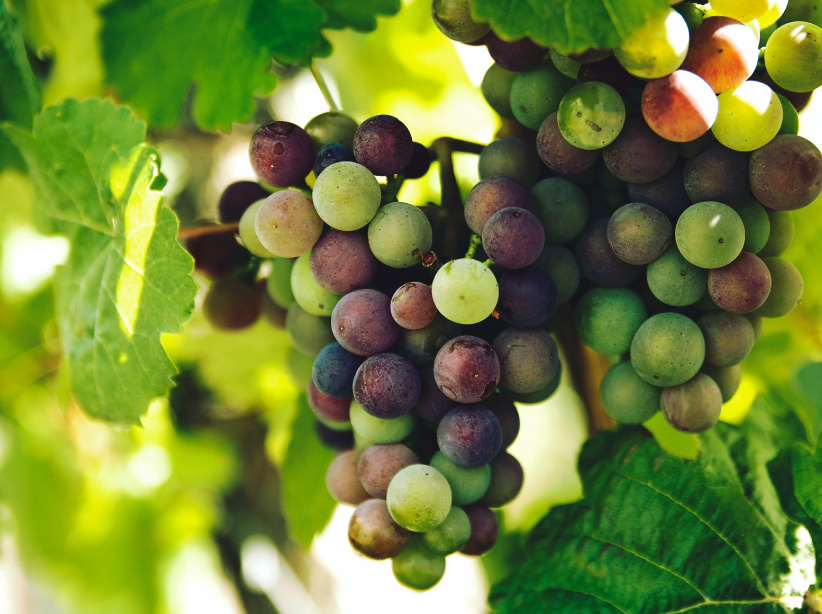
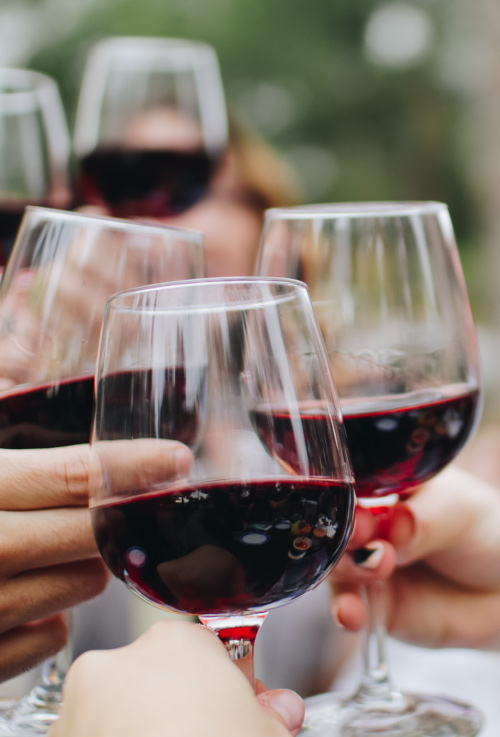


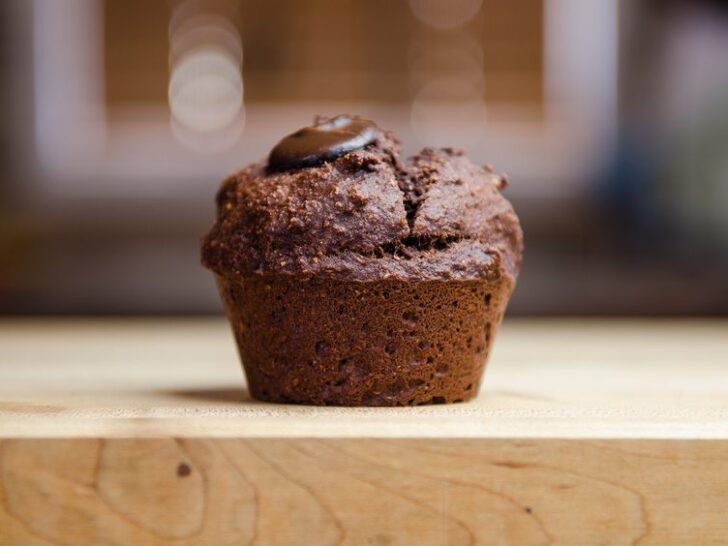
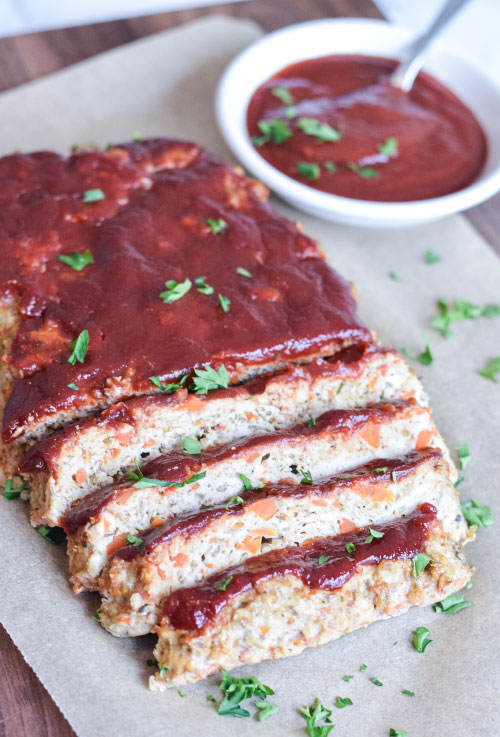
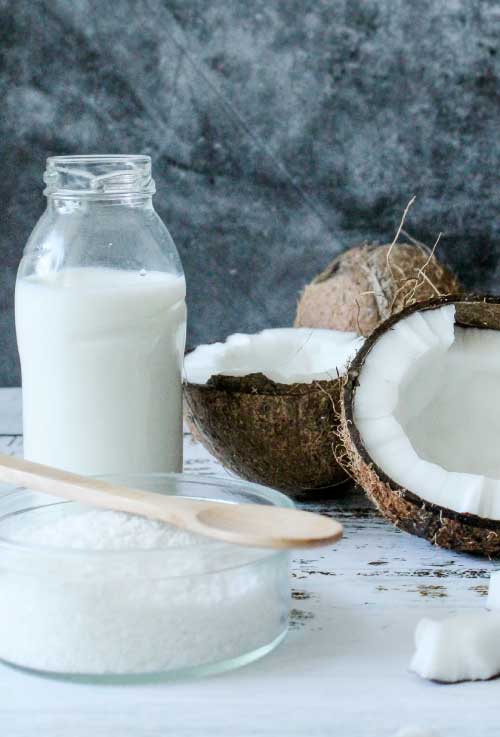
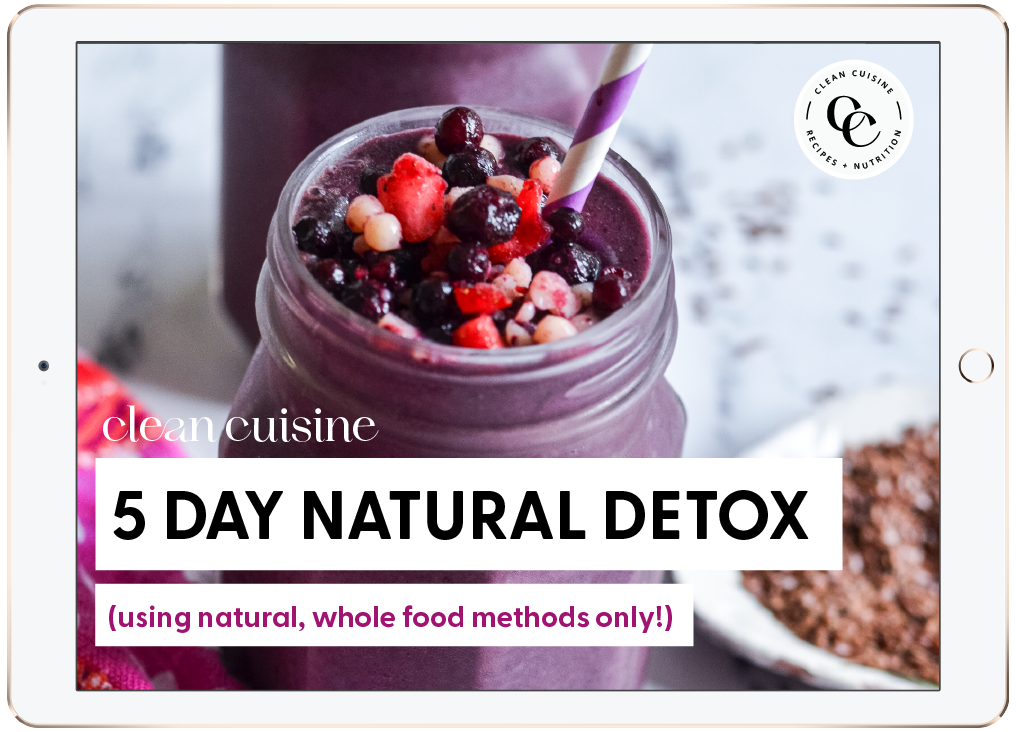
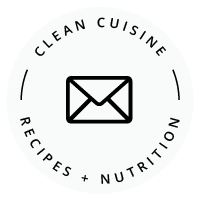
Slow Cooker Bolognese Sauce (With Hidden Veggies Galore!)
Tuesday 1st of September 2015
[…] pour yourself a glass of wine too And yes, Clean Cuisine and wine can be a perfect pairing (click HERE to learn our stance on […]